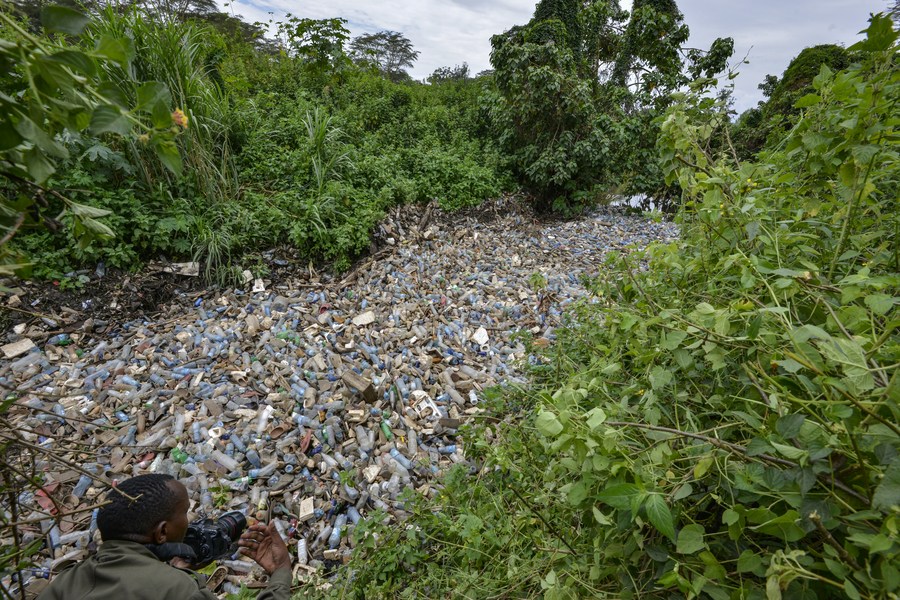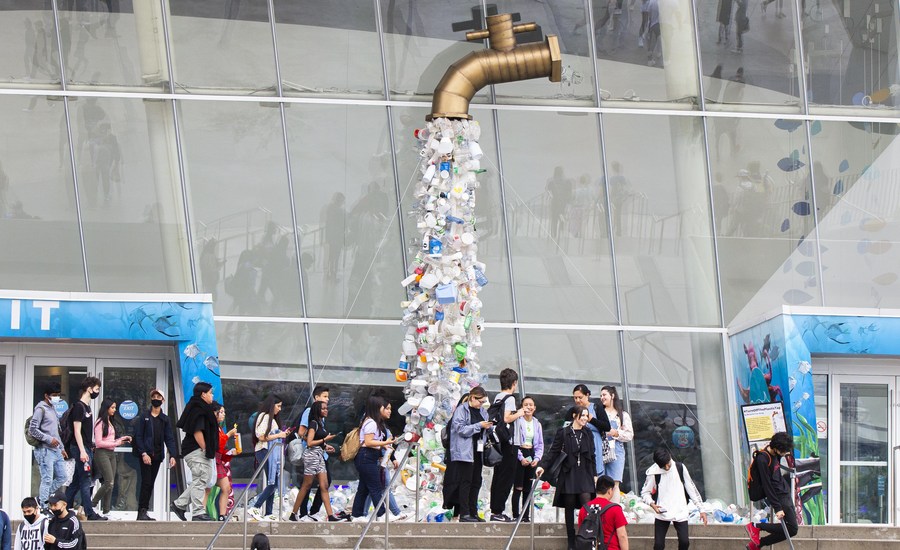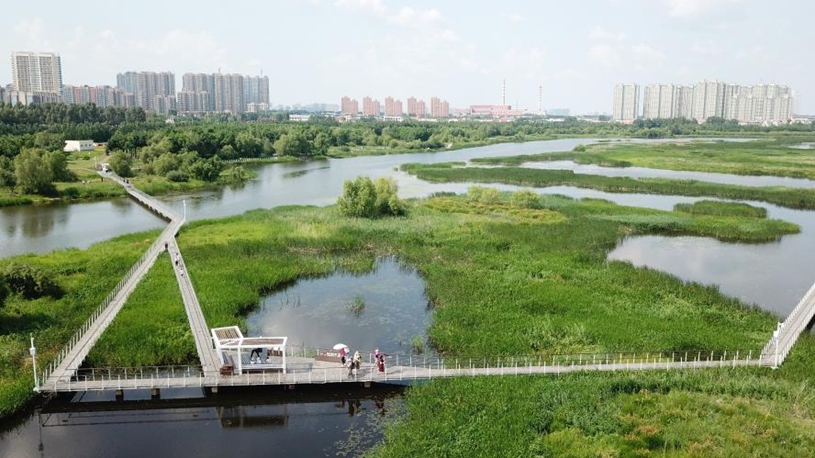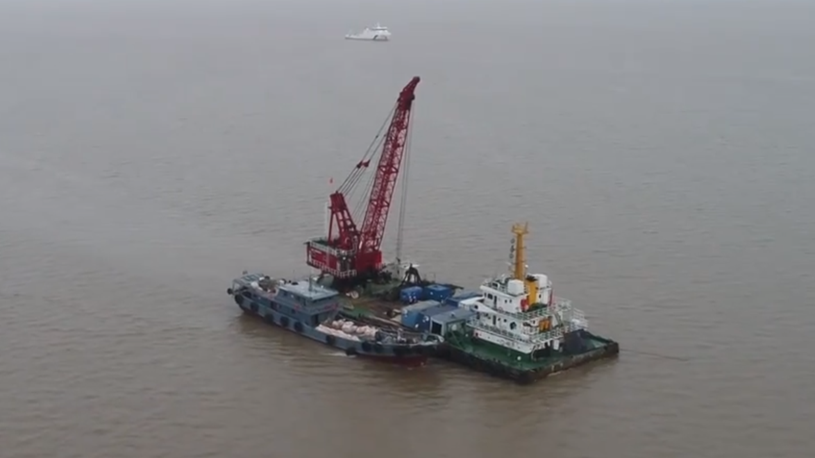
A photographer is seen at a section of the Njoro River that is filled with plastic wastes in Nakuru County, Kenya, on Nov. 17, 2022. (Photo by Sheikh Maina/Xinhua)
An online survey released by WWF showed that of the more than 20,000 respondents across 34 countries, an average of seven out of 10 support the first ever plastic treaty to create binding rules that apply to all countries.
GENEVA, Nov. 23 (Xinhua) -- "It's a once-in-a-generation opportunity for the global community to come together and agree on the rules and regulations that we need to combat plastic pollution at a global level," Eirik Lindebjerg, global plastics policy manager at the World Wide Fund for Nature (WWF), said of the WWF's call for a global treaty to end plastic pollution.
An online survey released by the WWF International and Plastic Free Foundation on Wednesday showed that of the more than 20,000 respondents across 34 countries, an average of seven out of 10 support the first ever plastic treaty to create binding rules that apply to all countries.
"There's a strong public mandate, a strong will, from the public and from citizens all over the world to really have these global rules set up through this treaty," Lindebjerg told Xinhua in an interview via video link.
Lindebjerg made the remarks as the first session of the Intergovernmental Negotiating Committee to develop an international legally binding instrument on plastic pollution, including in the marine environment, will take place in Uruguay from Nov. 28 to Dec. 2.
"While we won't see a deal coming out of Uruguay, it will be the very important kick-off of this two-year process. We saw in Nairobi last year that governments are really ready and committed to develop a legally binding treaty on plastic pollution," Lindebjerg emphasized.

People walk past the art installation "Turn Off The Plastic Tap" outside the Ripley's Aquarium of Canada in Toronto, Canada, on June 7, 2022. (Photo by Zou Zheng/Xinhua)
According to the WWF, negotiations for the treaty are expected to be concluded by 2024, and Lindebjerg urged the world to have "a treaty with teeth that is effective in ending plastic pollution" by the year of 2025.
However, the WWF warned in a press release that during the two-year negotiation period alone, the total amount of plastic pollution in the ocean is expected to increase by 15 percent.
"Currently, more than 2,000 animal species have encountered plastic pollution in their environment, and nearly 90 percent of studied species are known to be negatively affected," it estimated.
"We need a treaty that phases out some of the most problematic and harmful plastic types and products, we need a treaty that sets requirements for the products that we will continue to use so that they are designed for being reused or recycled, and we need global common standards for waste management," Lindebjerg noted.
"In addition, it's important that the treaty helps all countries in the world implementing it, so it needs a strong support mechanism as well," he continued. ■












